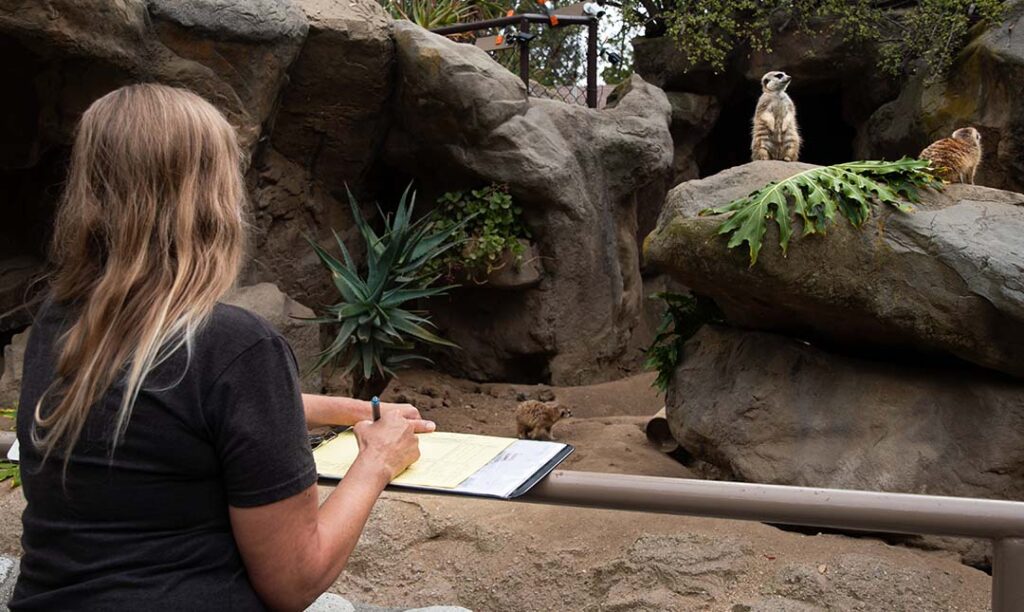Research
The L.A. Zoo was one of the first zoos in the nation to establish a research department. The goal of the Research Division is to undertake studies aimed at increasing knowledge of animal behavior, facilitating reproduction, and improving wellbeing.

Research impacts exhibit design and accessibility. It evaluates the effectiveness of behavioral enrichment. It influences animal management decisions. Knowledge gained through research benefits not just individual animals but species as a whole. The benefits increase as more studies are carried out and their findings shared.
Animal care staff rely on observations conducted by skilled researchers to answer questions such as “How does a change in diet affect flamingo behavior?”, “Do exhibit modifications increase the amount of time the orangutans spend off the ground?”, or “Does the presence of infants in the chimpanzee troop increase the amount of time adults spend in play?” Researchers are often on hand to observe animal introductions and to document any changes in group dynamics that may result.
In addition to the studies conducted by our own Research Division, a number of projects have been carried out on Zoo grounds. We have participated in surveys of raptors, Western gray squirrels, and other native wildlife in Griffith Park, coordinated by Cooper Ecological Monitoring, a biological consulting firm. Knowing how native wildlife utilizes the Zoo and its environs can help answer many ecological questions.
The Zoo has also been involved in numerous scientific studies carried out by academic institutions. Such collaborations benefit both institutions: The Zoo gains information of relevance to animal care and conservation goals, while university researchers gain the means to test their hypotheses. A recent study involving our chimpanzee troop revealed that yawning is contagious in chimps, just as in people. The findings were published in the journal Scientific Reports.
Most years, the Zoo offers a course through UCLA Extension, Observing Animals: Behavioral Studies in Zoos, taught by Director of Research Dr. Cathleen Cox. Students learn techniques for observing zoo animals, recording their behavior, and designing observational studies. Once they’ve mastered these fundamental skills, they may assist with a variety of ongoing studies being conducted at the Zoo.

